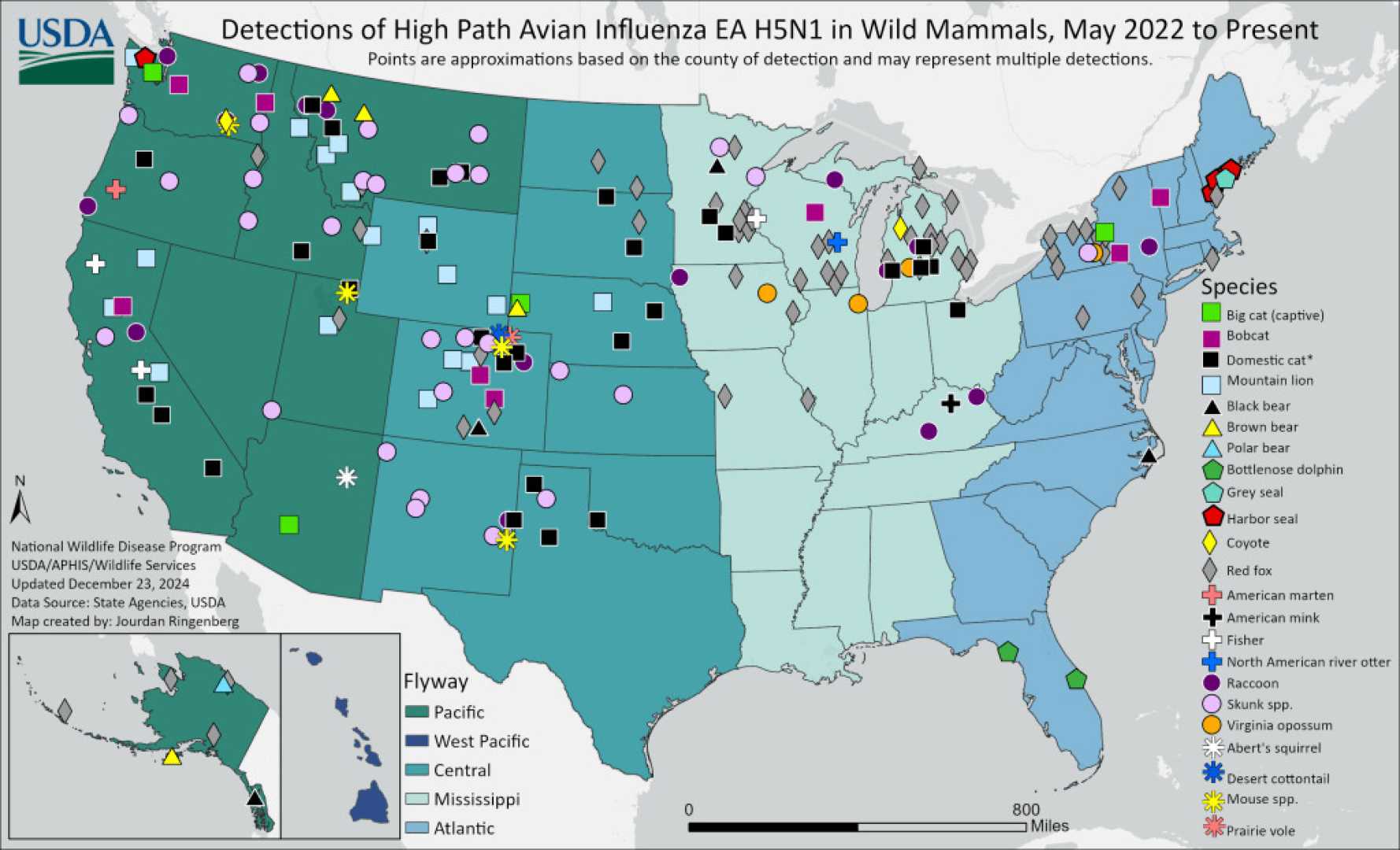Health
Experts Warn of H5N1 Pandemic Threat as Virus Spreads Nationwide

TAMPA, Florida — Health experts are sounding alarms as the H5N1 bird flu virus spreads rapidly among dairy farms in the United States. Since March 2024, over 1,000 dairy herds have been affected, leading to more than 70 human infections and at least one confirmed death. The Global Virus Network (GVN), a coalition of virologists from over 40 countries, urges immediate action to prevent potential human-to-human transmission.
Dr. Sten H. Vermund, chief medical officer of the GVN and dean of the USF Health College of Public Health, stated, “Understanding the current landscape of H5N1 infections is critical for effective prevention and response.” He emphasized that the virus’s ability to infect both animals and humans, along with recent genetic changes, raises significant concerns about its mutation potential.
Despite the current public health risk being classified as low by the Centers for Disease Control and Prevention (CDC), experts are recommending precautions particularly for farmworkers and individuals who come into contact with infected animals. The CDC continues to monitor the situation closely and collaborates with state officials to track those with animal exposures.
The H5N1 virus, known for its severe impact on poultry, is now confirmed to be circulating in all 50 U.S. states. Since 2022, more than 168 million poultry have been culled in response to the outbreak. The scale of the situation is placing a heavy strain on the agricultural sector, especially in areas with high-density farming.
In an urgent report published in The Lancet Regional Health—Americas, the GVN outlines critical gaps in pandemic preparedness. The report emphasizes the need for enhanced surveillance, improved biosecurity protocols, and a coordinated global response to mitigate this emerging threat. Dr. Elyse Stachler from the Broad Institute highlighted the importance of a robust monitoring system to detect affected animals and implement preventive measures quickly.
The report calls for immediate investments in vaccine development and a nationwide testing infrastructure to ensure a swift response to any potential viral mutations that could lead to person-to-person transmission. Dr. Christian Bréchot, GVN Vice Chair, emphasized, “We must act before the virus finds an efficient route to sustained human transmission.” As the outbreak continues to evolve, experts advocate for proactive engagement and preparedness from governments and healthcare systems worldwide.












